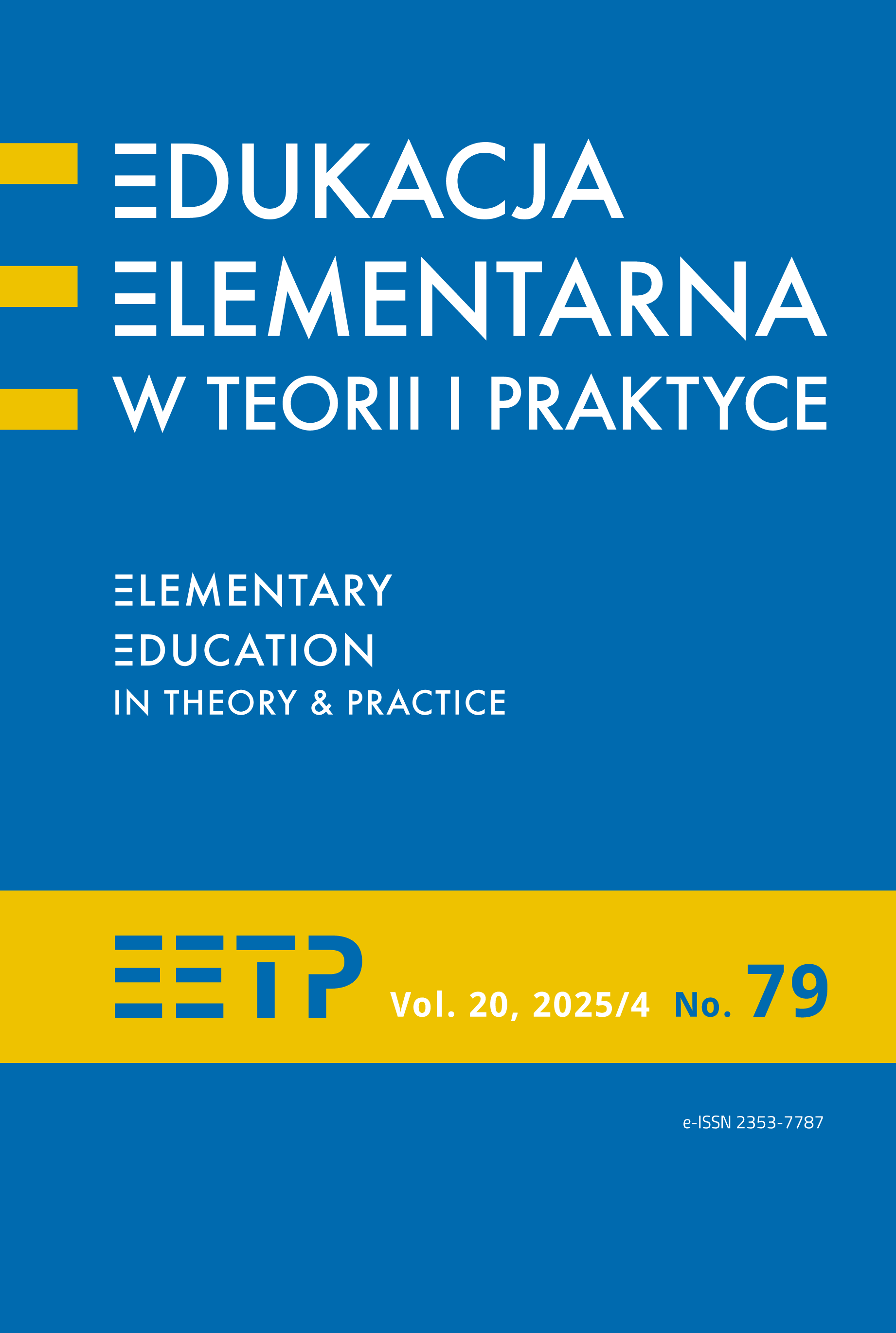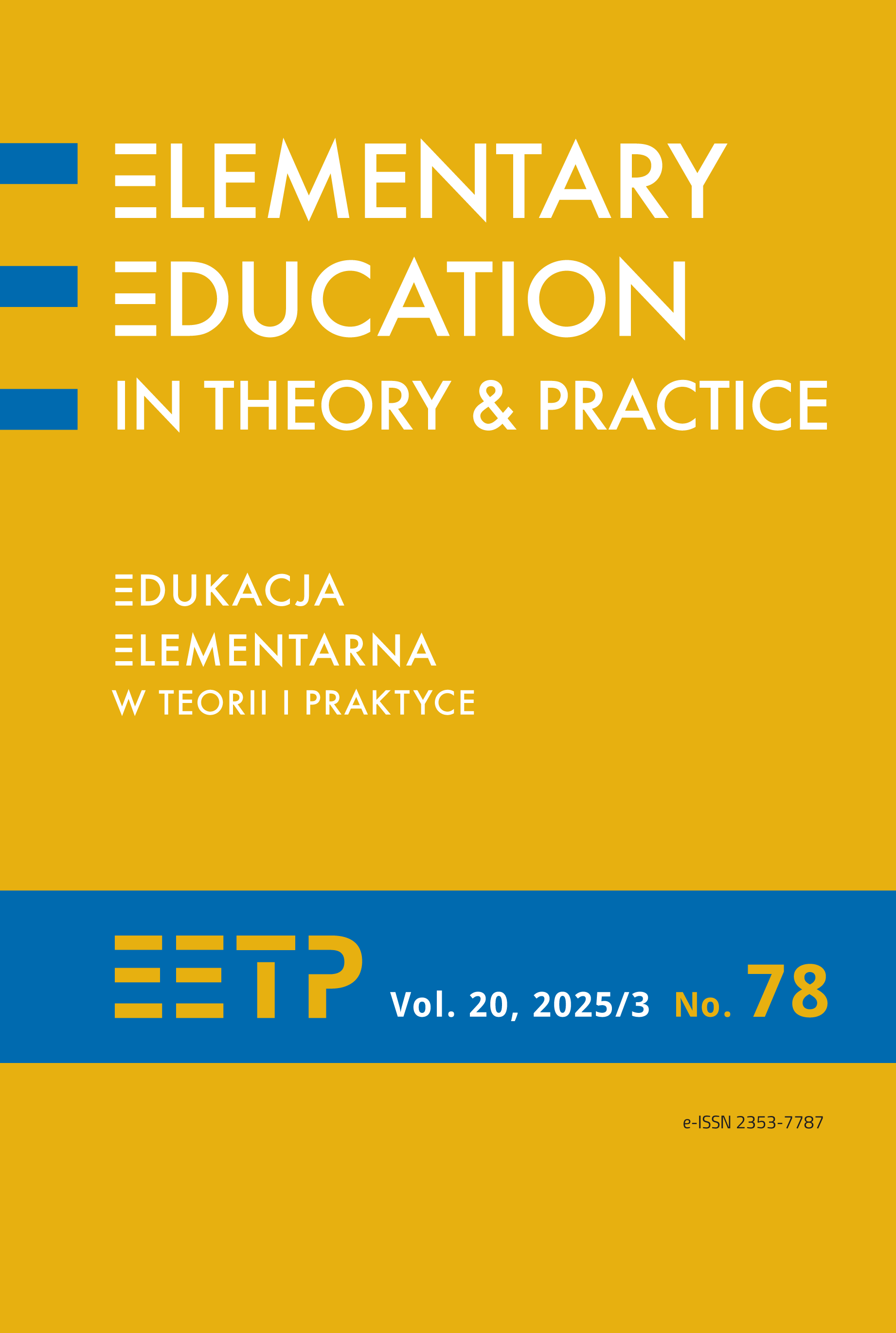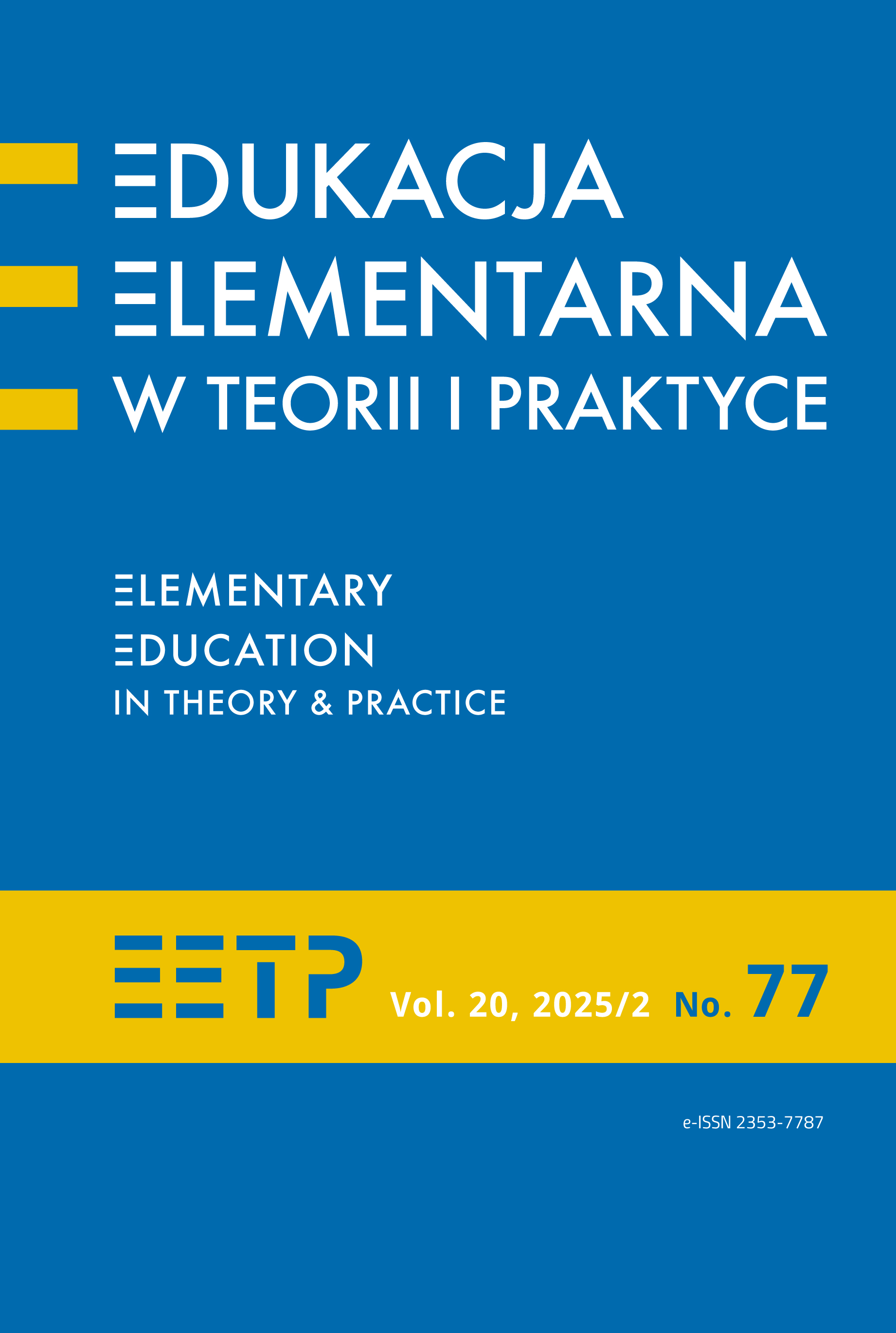Archives
-
 Reflective Practitioner - about the Competences of Preschool and Elementary Teachers
Vol. 20 No. 4(79) (2025)
Reflective Practitioner - about the Competences of Preschool and Elementary Teachers
Vol. 20 No. 4(79) (2025)A review of contemporary pedeutological literature allows to notice three qualitatively different ways of thinking about the teacher. The "adaptive technician" works according to proven, repeatable patterns, perceiving himself as a transmitter of knowledge. The "reflective practitioner" critically reflects on his/ her work as well as the structure of one’s own beliefs, assumptions made and achieved results. The "transformative intellectual" is socially minded, open to innovation, consciously shaping the wisdom of its students, independent and critical of ready-made patterns and scenarios of conduct. To what extent do the above-mentioned models of functioning apply to preschool and elementary teachers? We invite researchers and practitioners to scientific reflection on the competences needed by contemporary teacher of a small child. What epistemological, ontological and axiological assumptions/ beliefs do teachers apply in their work? How do the social context/ institutional climate/ mental culture of the school shape expectations towards the teaching profession?
-
 The Concept of 4Cs Competences as a Challenge for Contemporary Education of Young Children
Vol. 20 No. 3(78) (2025)
The Concept of 4Cs Competences as a Challenge for Contemporary Education of Young Children
Vol. 20 No. 3(78) (2025) -
 From STEAM concepts to education for sustainable development - new ideas in the education and upbringing of the young child
Vol. 19 No. 4(75) (2024)
From STEAM concepts to education for sustainable development - new ideas in the education and upbringing of the young child
Vol. 19 No. 4(75) (2024)The discussion of modernising education is invariably linked to reforming it, and the need for modernisation is permanently embedded in the condition of schools. What direction should these reforms take? What is at the heart of school modernisation? We can ask more of such questions, but, as J. Delors points out, the fundamental direction of these changes is determined by the future, and we must “think about our future and build it together” (Delors, 1998).
-
 Literature and music in children's education
Vol. 19 No. 3(74) (2024)
Literature and music in children's education
Vol. 19 No. 3(74) (2024)From East to West and North to South, no countries in the world do not have lullabies or nursery rhymes. These are the infused forms of music and literature that the humans are exposed to right from birth or as embryos. The interplay between music and literature is a significant cultural phenomenon that has shaped human expression and communication across space and time. Both forms of expression offer rich avenues for emotional expression, storytelling, and cultural transmission. In educational settings, particularly in primary education, the integration of literature and music offers a powerful tool for cognitive and language development, cultural literacy, and emotional growth (Hallam, 2010). This introductory essay examines the relationship between literature in music and music in literature and discusses how these interactions contribute to language and literacy development and the broader educational experience of young children.
-
 The Role of Family and School in the Formation of Inter- and Intrapersonal Competence
Vol. 19 No. 2 (73) (2024)
The Role of Family and School in the Formation of Inter- and Intrapersonal Competence
Vol. 19 No. 2 (73) (2024) -
 Iconotexts in the Face of Contemporary Social Crises
Vol. 18 No. 4 (71) (2023)
Iconotexts in the Face of Contemporary Social Crises
Vol. 18 No. 4 (71) (2023)The concept of crisis means a difficult, often prolonged, difficult, dramatic situation, which brings with it the feeling of escalating anxiety that transforms into fear, danger. Maintained mainly in the media space, the appearance of the deadly consequences of war crises, environmental crises in various places of the world further and closer is a daily reality for modern children. We would most willingly protect them from any emerging evil in alternative fiction, hide, wait. However, this is not possible if we want to take children seriously. In the sphere of contemporary culture for children since the 1970s there have been picture books and other iconotexts, which are an extremely idiosyncratic genre of art that aims to sensitize the very youngest audiences to the issues of broader contemporary crises and new challenges facing our world. Their boon allows them to understand the world around them, to be immersed in it, and sometimes to be involved in possibly changing its conditions.
-
 Dialogue in Multicultural Conditions
Vol. 18 No. 3(70) (2023)
Dialogue in Multicultural Conditions
Vol. 18 No. 3(70) (2023)This issue of EETP deals with current and urgent problems in Polish elementary education, which have come to prominence in the wake of the tragic situation of our neighbors – the war in Ukraine. Problems of the spatial and cultural coexistence of individuals and social groups that differ in many respects require further search for solutions, despite the numerous activities of researchers: educators, psychologists, linguists, glottodidacticians, cultural studies experts, as well as teachers who support preschool children, youngest students and their families on a daily basis. Therefore, the main theme of this volume is the educational value of dialogue, its relational nature and the importance that dialogue places on social debate in the public sphere. Bringing this difficult topic, which causes social tensions, under discussion, offers the promise of showing different perspectives on the phenomena under study, thus opening a space for a pedagogy of dialogue.






